2023 marked a significant milestone for Maine as it became one of the first states to legalize THCA (tetrahydrocannabinolic acid), a non-psychoactive cannabinoid found in cannabis plants. This legislative change reflects a growing recognition of THCA's potential health benefits, which include anti-inflammatory, neuroprotective, and anti-nausea properties, without the psychoactive effects associated with its metabolite THC. Maine's decision to legalize THCA is in line with national acclaim for its therapeutic uses, particularly in managing chronic pain, inflammation, and anxiety. The state's commitment to promoting wellness through accessible cannabinoid compounds has been underscored by this move, positioning Maine at the forefront of THCA legalization in the U.S. Consumers in Maine can now explore these benefits, with a focus on adhering to local regulations and securing products from licensed dispensaries that comply with both state and federal guidelines, including maintaining THC levels below 0.3% as per the 2018 Farm Bill. Users are encouraged to stay updated on the evolving legal landscape to ensure compliance and make informed decisions about their wellness choices.
Exploring the multifaceted world of cannabinoids, this article sheds light on the emerging wellness trend centered around THCA flower—a natural compound gaining recognition for its potential therapeutic properties and legal status in Maine. As the Green Wave continues to reshape the landscape, enthusiasts are increasingly turning to THCA as a non-psychoactive cannabinoid with a host of health benefits distinct from those of Delta-9 THC. From cultivation practices that ensure its purity to the diverse ways it can be integrated into one’s wellness routine, this piece delves into the science, sourcing, and consumption methods of THCA flower, all within the context of Maine’s evolving legal framework. Join us as we uncover how THCA flower is making waves in Maine’s health and wellness scene.
- Unveiling THCA Flower: A Natural Marvel and Its Rising Popularity in Maine Amidst Legal Changes
- The Science Behind THCA: Potential Health Benefits and How It Differs from Delta-9 THC
- Sourcing and Cultivation: Understanding the Journey of THCA Flower Legality in Maine
- The Therapeutic Spectrum: Exploring THCA's Effects on Well-being and Chronic Conditions
- Consumption Methods: Creative and Effective Ways to Experience THCA Flower Benefits
- Legal Landscape: Navigating the Regulations Governing THCA Flower Use in Maine
Unveiling THCA Flower: A Natural Marvel and Its Rising Popularity in Maine Amidst Legal Changes
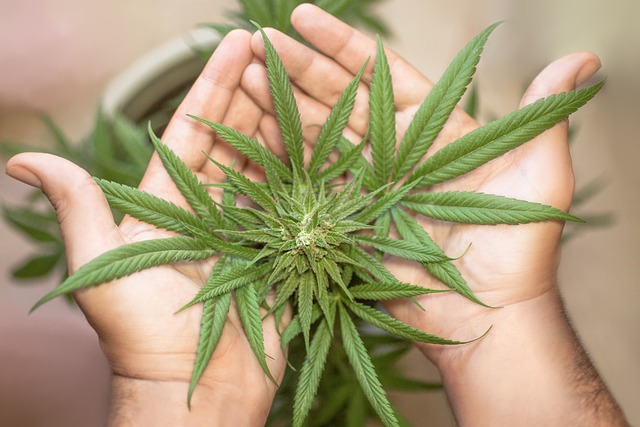
2023 has marked a pivotal moment in Maine’s history with the legalization of THCA flower, opening up new avenues for natural wellness among its residents. Known as tetrahydrocannabinolic acid, or THCA, this non-psychoactive cannabinoid precursor to THC has garnered attention for its potential health benefits and is now legally accessible in Maine, contributing to its rising popularity. Unlike its psychoactive counterpart, THCA interacts with the body’s endocannabinoid system without the “high” associated with THC, making it an appealing option for those seeking the therapeutic properties of cannabis without mind-altering effects.
The natural marvel of THCA flower has been celebrated across the nation, and its legal status in Maine has further spotlighted its potential. Extracts from this flower have been used to alleviate various ailments, including chronic pain, inflammation, and anxiety. The state’s legislative changes have paved the way for consumers to explore and benefit from THCA’s well-documented properties, which include anti-inflammatory, neuroprotective, and anti-nausea effects. As a result, Mainers are increasingly turning to THCA flower as a natural alternative to manage their health concerns, thereby highlighting the significance of these legislative shifts in promoting health and wellness.
The Science Behind THCA: Potential Health Benefits and How It Differs from Delta-9 THC
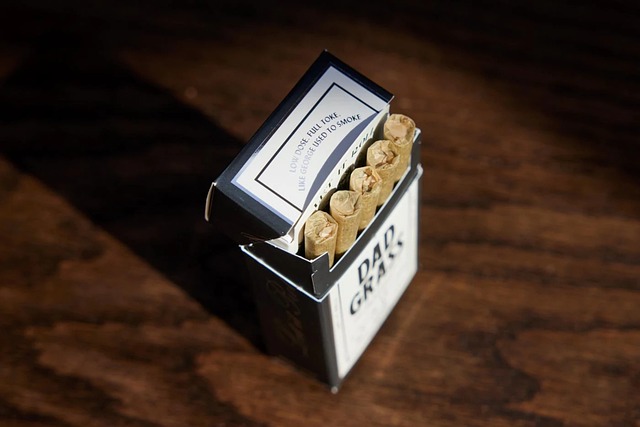
Cannabidiolic acid (THCA) is a non-psychoactive cannabinoid found in the Cannabis sativa plant, and it is one of the many compounds that have piqued scientific interest due to its potential health benefits. While THCA is the precursor to Delta-9 tetrahydrocannabinol (THC), the psychoactive component of cannabis, their effects differ significantly. Research suggests that THCA may offer a range of therapeutic properties without the psychoactive ‘high’ associated with Delta-9 THC. Preclinical studies indicate that THCA exhibits anti-inflammatory, anti-nausea, anti-emetic, and neuroprotective qualities, which could be beneficial for various health conditions. Its interaction with the endocannabinoid system, particularly the CB1 and CB2 receptors, is believed to modulate pain and inflammation, making it a subject of interest in the management of chronic pain and inflammatory diseases.
As of the knowledge cutoff in 2023, THCA’s legal status varies by jurisdiction. In Maine, THCA is legal under certain conditions. The state has a comprehensive medical cannabis program, and in June 2021, Maine voters passed a referendum to legalize adult-use cannabis, which includes THCA. However, the specifics of how THCA can be legally utilized outside of research settings may still be under development as laws and regulations evolve. Consumers interested in exploring THCA’s potential benefits should first consult with healthcare professionals and ensure compliance with local laws, as the legal landscape for cannabinoids is dynamic and subject to change. Understanding the nuances between THCA and Delta-9 THC is crucial for those seeking to harness the unique properties of cannabinoids for health purposes, especially in a state like Maine where such compounds are part of an emerging legal market.
Sourcing and Cultivation: Understanding the Journey of THCA Flower Legality in Maine
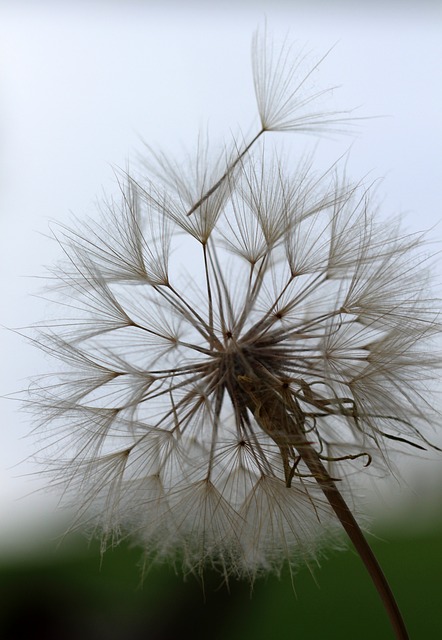
The journey of THCA flower from sourcing to cultivation is a multifaceted process that is deeply intertwined with legal considerations, particularly in Maine. As of the latest legislative updates, THCA, or tetrahydrocannabinolic acid, the raw cannabinoid precursor to THC, has garnered attention for its potential therapeutic benefits and is legal in Maine under certain conditions. The cultivation of THCA-rich flowers requires meticulous attention to strain selection, soil quality, and environmental factors to ensure a high concentration of the compound. Growers in Maine must adhere to strict state regulations, which include obtaining licenses for cultivation, processing, and distribution. These regulations are designed to maintain quality control and consumer safety while promoting sustainable agricultural practices.
The legality of THCA flowers in Maine is subject to both state and federal laws. At the state level, Maine voters approved the use, possession, and cultivation of cannabis for adult recreational use, with a focus on THCA’s non-intoxicating properties. However, the Farm Bill legalized hemp and its derivatives, including THCA, at the federal level, provided they contain less than 0.3% THC. This legislative framework has paved the way for the emergence of a legal THCA flower market in Maine, where consumers can purchase and possess these products legally. As the industry continues to evolve, it is imperative for stakeholders to stay informed about regulatory changes that could impact sourcing and cultivation practices. Consumers seeking THCA flowers in Maine must ensure they are purchasing from compliant sources to fully abide by state and federal regulations.
The Therapeutic Spectrum: Exploring THCA's Effects on Well-being and Chronic Conditions
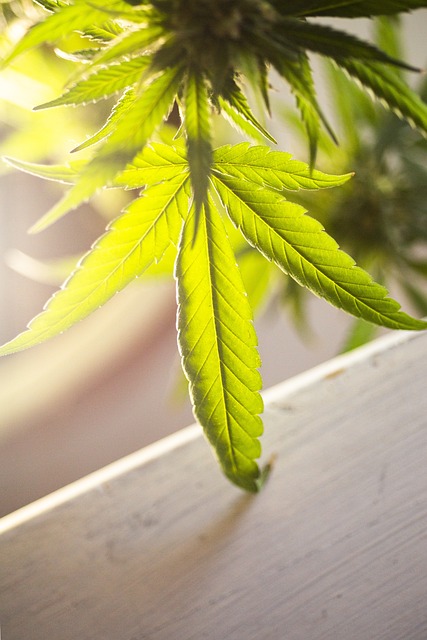
THCA, or tetrahydrocannabinolic acid, is a natural compound found in the cannabis plant that has garnered attention for its potential therapeutic properties. As of the knowledge cutoff in 2023, THCA is legal in Maine, allowing residents to explore its benefits within the confines of the law. Unlike its well-known counterpart THC, THCA does not produce psychoactive effects, making it a promising candidate for wellness and therapeutic applications without the “high” associated with cannabis use.
Research indicates that THCA interacts with the body’s endocannabinoid system, which plays a role in regulating a range of functions and processes, including pain, inflammation, and immune response. Preliminary studies suggest that THCA may offer analgesic and anti-inflammatory effects, making it potentially beneficial for individuals suffering from chronic pain conditions such as arthritis or neuropathy. Additionally, its neuroprotective properties are being explored for their potential to benefit neurological disorders like multiple sclerosis and epilepsy. In Maine, where the use of THCA-rich products is legal, consumers have access to these benefits without the psychoactive components that some wish to avoid. The therapeutic spectrum of THCA’s effects continues to be an area of active research, with ongoing studies aiming to further elucidate its potential for promoting well-being and managing chronic conditions.
Consumption Methods: Creative and Effective Ways to Experience THCA Flower Benefits
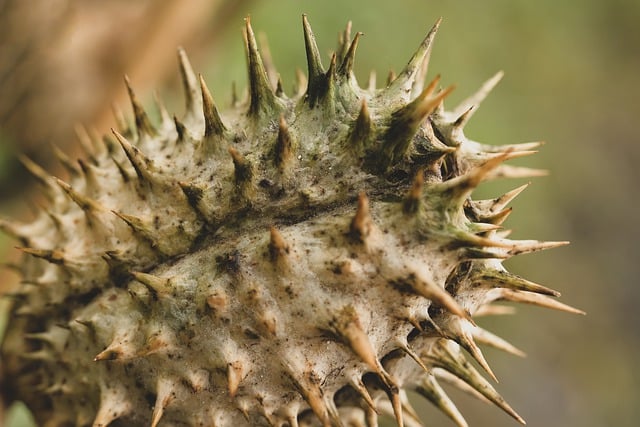
Exploring the benefits of THCA flowers has led to a variety of consumption methods that cater to different preferences and situations. One of the most straightforward ways to experience THCA is through traditional smoking techniques using a pipe, bong, or vaporizer. These methods allow for precise temperature control when vaporizing, which can maximize the potential benefits while minimizing unwanted byproducts. For those in states where THCA is legal, such as Maine, it’s important to consider local regulations regarding consumption and ensure compliance with public use laws. Another innovative approach is the use of cannabis-infused edibles, where THCA can be activated into THC through decarboxylation during the cooking process, offering a different kind of experience that lasts longer due to the way the body processes ingested cannabinoids. Infusing THCA flowers into oils, tinctures, or topicals provides a range of application methods from sublingual to transdermal, each with its unique onset and duration of effects. Regardless of the chosen method, understanding the legal status in your region, like Maine, is crucial for a safe and responsible experience. Users should also be mindful of their dosage and how their body reacts to THCA to optimize its potential wellness properties.
Legal Landscape: Navigating the Regulations Governing THCA Flower Use in Maine

In Maine, the legal status of THCA flower, a non-psychoactive cannabinoid found in the Cannabis sativa plant, is subject to specific regulations that reflect both state and federal guidelines. As of the knowledge cutoff date, the Maine Medical Use of Marijuana Program allows for the use of products with THCA for qualifying patients. Patients must possess a valid physician’s recommendation or a caregiver card to legally purchase and possess THCA flower. The state has established a framework for dispensaries to operate lawfully, providing THCA products that are derived from hemp and contain less than 0.3% delta-9-tetrahydrocannabinol (THC) on a dry weight basis, thus complying with the 2018 Farm Bill’s provisions. It is crucial for consumers to stay informed about the evolving legal landscape as laws can change and may vary by municipality within Maine. Users should ensure that their THCA flower purchases align with these regulations to avoid any legal complications.
Navigating the legal landscape of THCA flower use in Maine requires due diligence from both consumers and dispensaries. The state’s Office of Marijuana Policy oversees the program, setting clear guidelines for product labeling, sale, and possession. For those interested in utilizing THCA flower for its potential therapeutic benefits, it is imperative to understand the distinctions between hemp-derived THCA and cannabis-derived THC. Hemp-derived products, including THCA flower that contains less than 0.3% delta-9-THC, are legal under federal and state laws, provided they are sold through licensed dispensaries. Consumers looking to legally purchase THCA flower in Maine must adhere to these regulations, ensuring their purchases are compliant with the law. This attention to legality is essential for maintaining access to these products within the state’s regulatory framework.
In conclusion, the emerging interest in THCA flower as a beneficial natural compound is reshaping the landscape of wellness in Maine. With its unique potential health benefits distinct from Delta-9 THC and the recent legal changes that have made THCA legal in Maine, consumers are exploring this non-psychoactive cannabinoid for its therapeutic properties. The cultivation and sourcing of high-quality THCA flower are critical to fully realize its benefits, which can be enjoyed through various consumption methods tailored to individual preferences and needs. As legal frameworks continue to evolve, it’s clear that THCA holds a promising place in the wellness arsenal for those in Maine seeking alternative or complementary remedies. The scientific community remains intrigued by the possibilities THCA presents, and ongoing research is anticipated to shed further light on its benefits.
